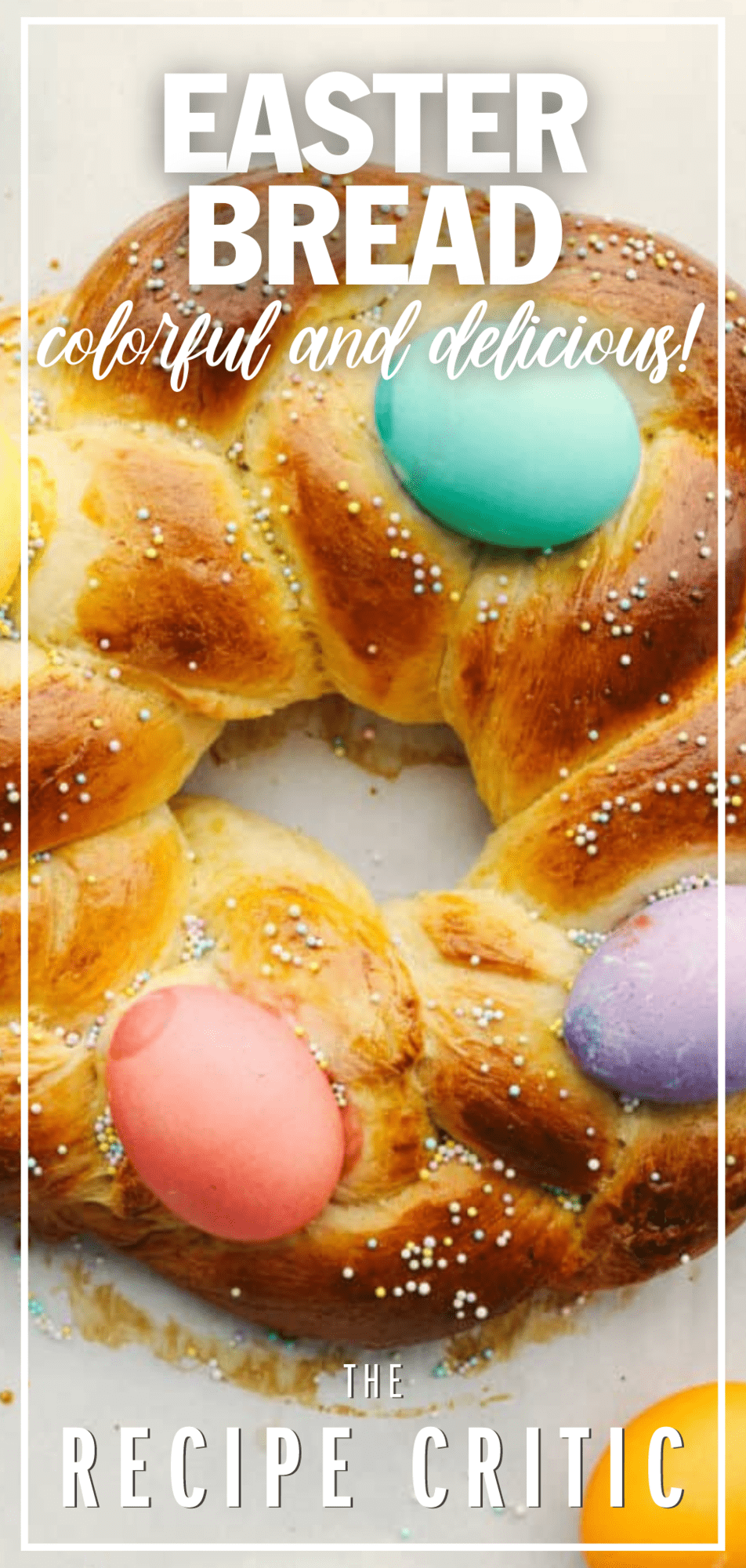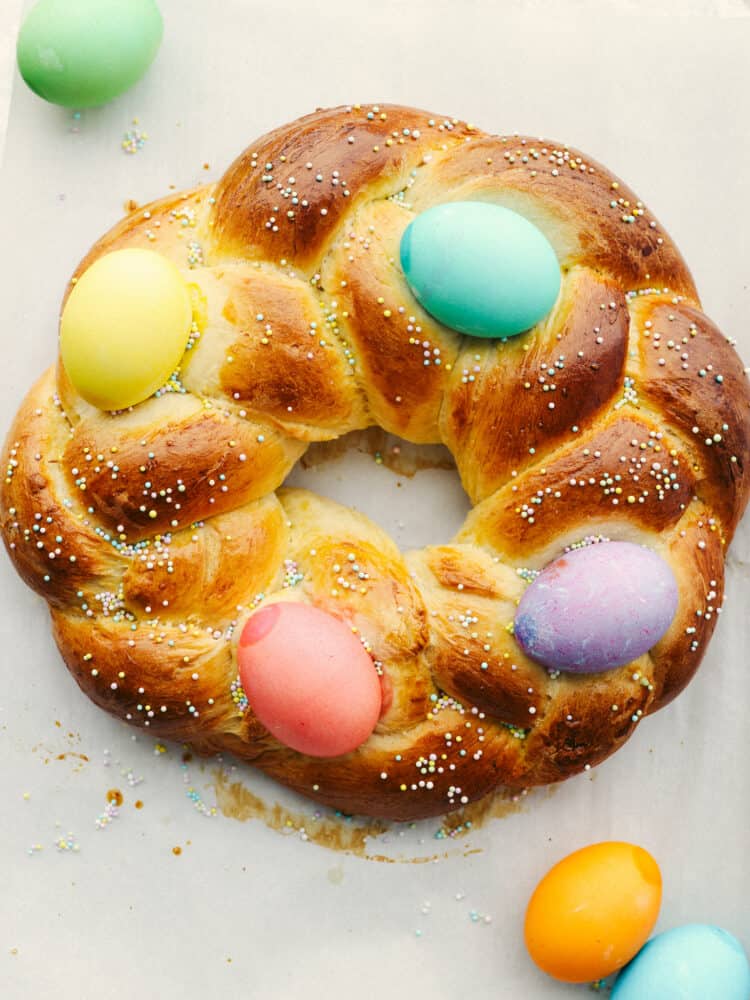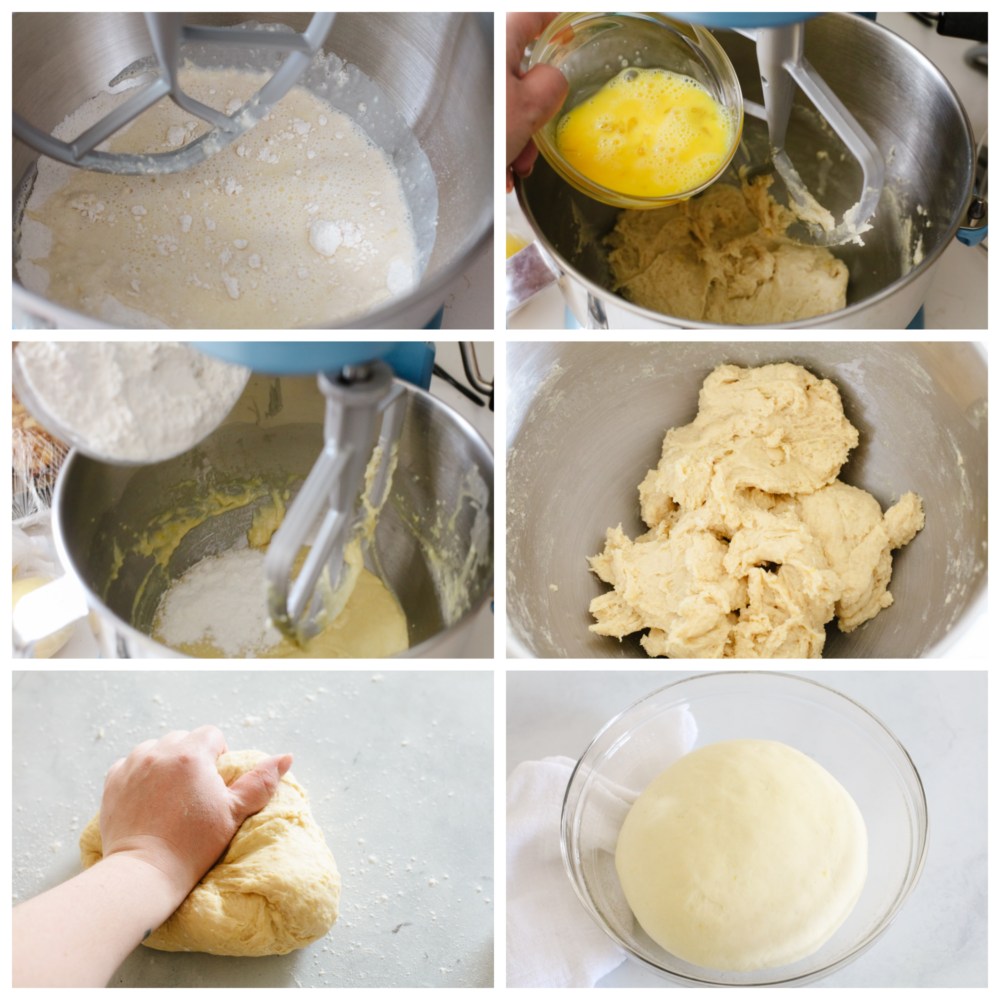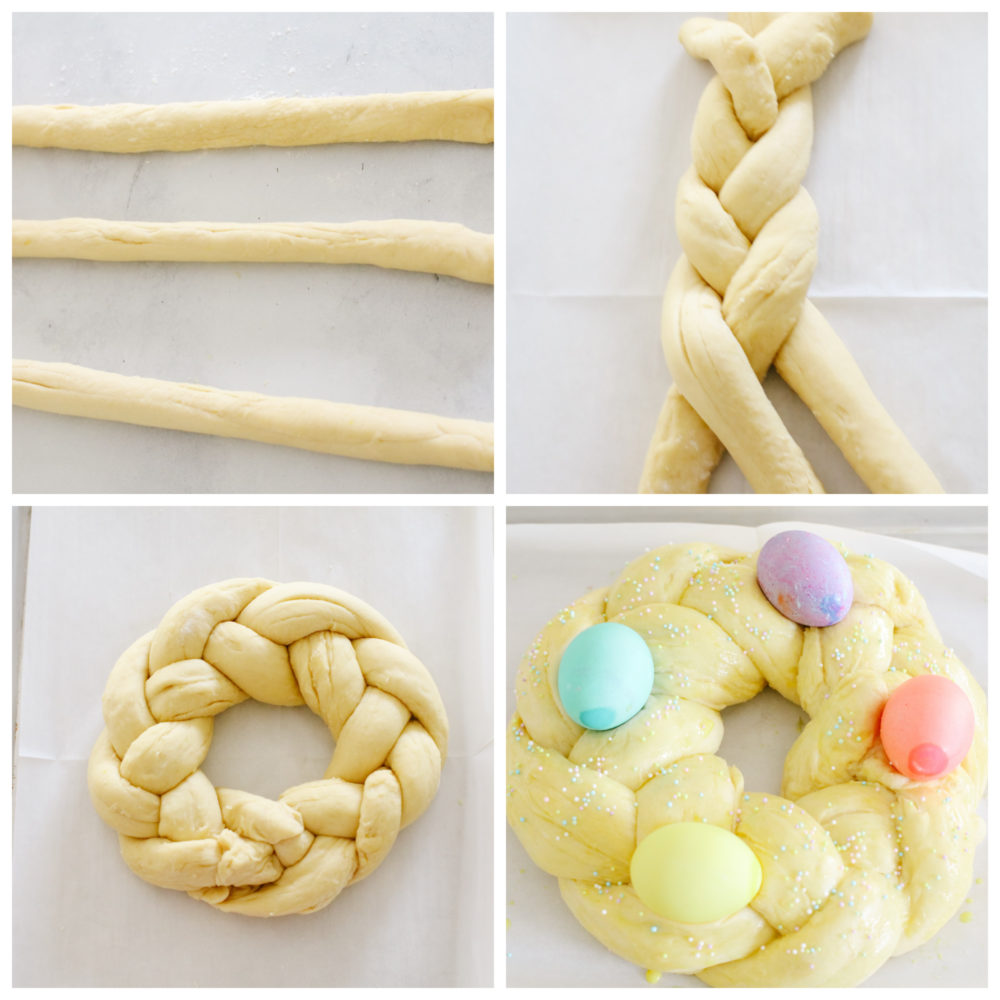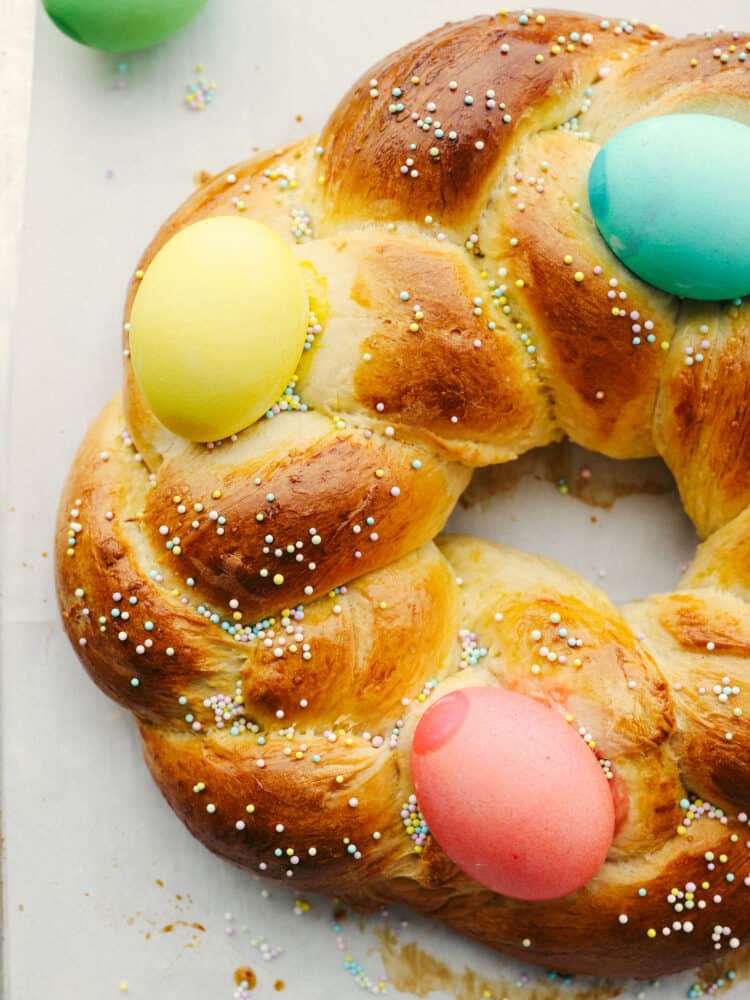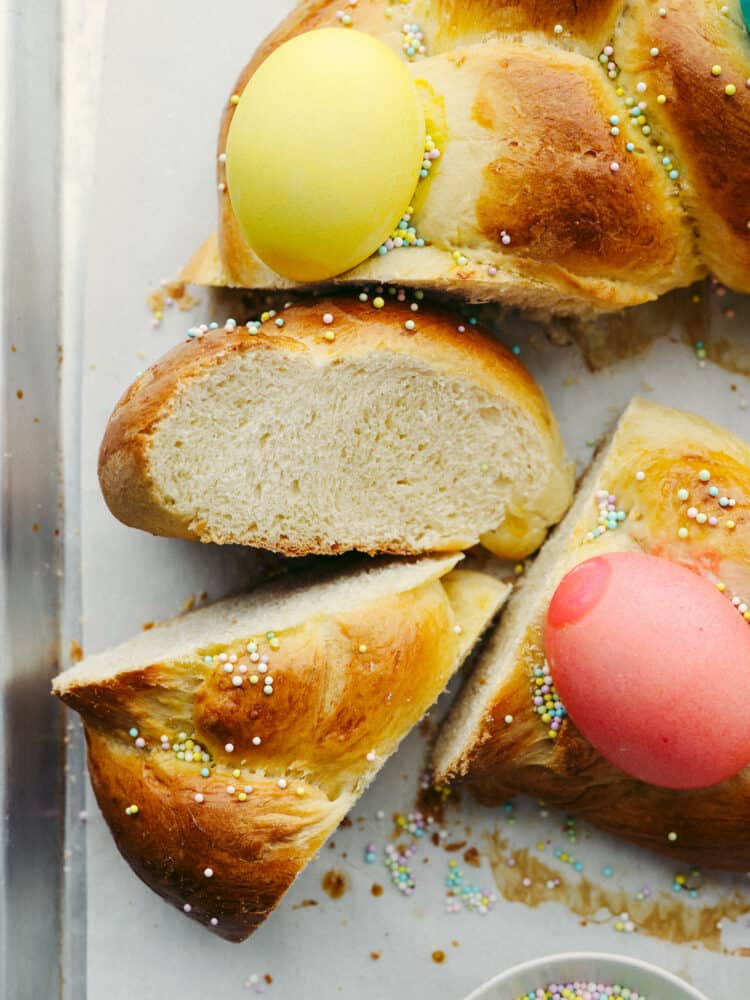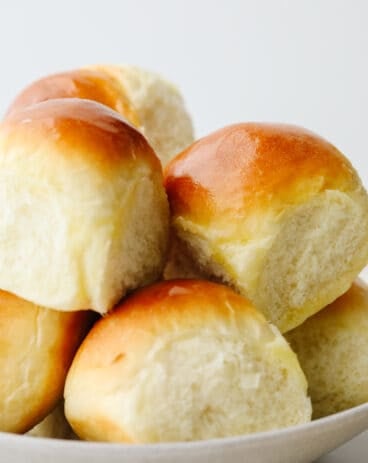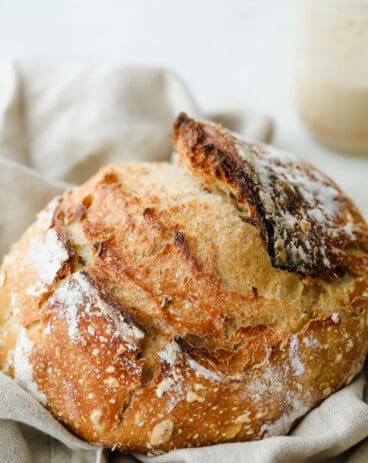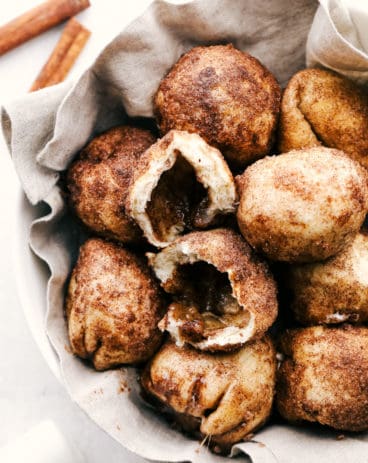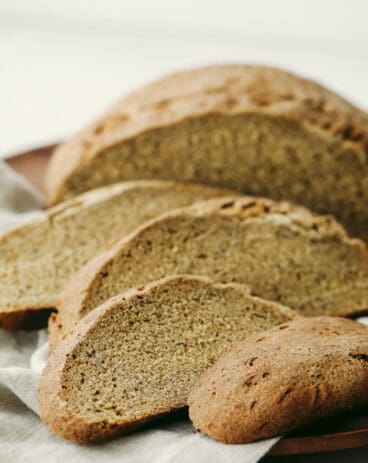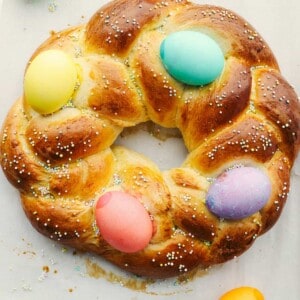Easter bread is fluffy, sweet, and almost too cute to eat! This festive bread is sure to be a hit with its soft, tender texture and colorful presentation! Easter has some of the best food. Of course, you’ve got the ham for dinner, but the sweet treats are just as important! They’re delicious with pastel colors galore! You’ve got to add Easter egg cookies, homemade Reese’s eggs, and Easter cake to your baking lineup. They won’t disappoint!
Braided Easter Bread Recipe
I don’t think there’s anything quite as festive as this Easter bread. It’s bright, it’s colorful, and is perfectly soft and sweet – everything an Easter treat should be! The braided wreath shape is super easy to achieve and looks absolutely stunning after it’s baked! It’s prepared similarly to Challah bread, just with a little lemon zest to achieve that perfect springtime flavor! Even if you’re new to making homemade bread (hi, prepare to be obsessed!) this is a pretty foolproof recipe and I’ve included tips below on how to get it perfect every time! This is also a super fun family activity. My girls loved helping out with braiding the dough and adding the sprinkles on top. The hardest part, really, is waiting for it to bake. It smells absolutely divine. I’m constantly torn between not wanting to eat it because it’s so pretty and wanting to devour the whole thing because it’s so delicious. Still trying to find balance here. Let’s get baking!
All Ingredients Needed
Only standard bread-making ingredients are needed here! Nothing fancy! Simple ingredients make the best bread. You can find measurements for each of the ingredients in the recipe card below.
Granulated Sugar: Gotta make this bread nice and sweet!Active Dry Yeast: Make sure you pick your type of yeast carefully- I used active dry yeast here and it does need to be activated.Lemon Zest: Adds a hint of bright flavor!Salt: You only need to add a little bit to keep your bread from tasting bland.All-Purpose Flour: All-purpose flour has a low protein content which means it will keep the structure of your bread light and fluffy.Milk: Tenderizes and adds moisture to the dough.Unsalted Butter: The fat content in butter helps to keep your bread ultra-soft.Eggs: Needed to bind everything together!3 to 4 Dyed Eggs: Leave these uncooked. They’ll cook as the bread bakes! (Also, you don’t have to eat them. They’re purely decorative.)Egg Yolk: For that gorgeous egg wash on top!Nonpareil Sprinkles: These are the sprinkles that look like multicolored little balls. You can use these or any other colorful sprinkles you like! The sky is the limit!
Preparing Dough / Proofing
While Easter bread only needs a few minutes of prep, this recipe does require proofing, so be sure to schedule out a few hours to make this bread from start to finish. You don’t want your guests to miss out!
Shaping / Baking Your Easter Bread
Don’t Overwork Dough: You only want to work your dough until it is smooth and stretchy. Any more than that and too much gluten may develop, leaving you with bread that is hard and rubbery rather than light and fluffy.Proof in Oven: To help the dough rise faster, you can set your oven to “warm”, or as low as it will go (usually 170°). Place the covered dough in the warm oven and use a clean spray bottle to spray water on the bottom and sides of the oven. Quickly close the oven door to trap in the steam. The warm, moist environment will speed up the rising process, so be sure the check on the dough after 30 minutes or so to prevent the dough from over-proofing. You can spray more water on the oven a few times to help keep it moist inside.Check Internal Temperatures: Just so you don’t burn your beautiful Easter bread, use a thermometer to check the internal temperature. Once it’s reached 190 degrees Fahrenheit, you’re good to pull it out and let it cool!
At Room Temperature: Store in an airtight container or covered tightly with plastic wrap. Your Easter bread will stay fresh for up to 4 days.
1-Hour Rolls
Sourdough Bread
Easy Empty Tomb Rolls
Rye Bread
All nutritional information is based on third party calculations and is only an estimate. Each recipe and nutritional value will vary depending on the brands you use, measuring methods and portion sizes per household.
The Best Homemade Alfredo Sauce Recipe Ever!
Insanely Delicious Prime Rib Recipe
Lemon Garlic Parmesan Shrimp Pasta
